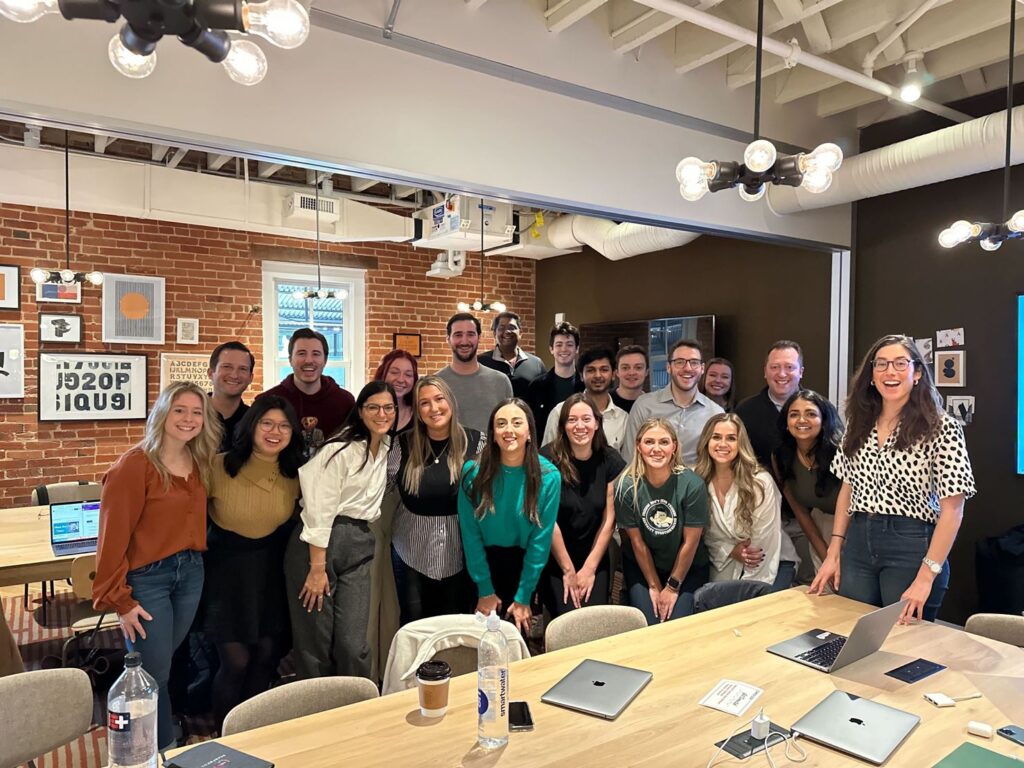
Founders: Sravish Sridhar
Founding: 2020
Mission: Earn trust in every business relationship
Employees: 65+ & 33% Local
Workplace: Remote
Stage & Capital Raised: Series A & $22M raised
Investors: OpenView, Tola Capital & various Angels
Key Customers: BitSight, Snyk, DataRobot, Desktop Metal, Notarize, Robin, Gremlin, TetraScience, Wasabi, etc.
Glassdoor Rating: N/A
Valuation (estimated): $50M – $100M (assuming they sold ~20% of the company in the Q2 ‘22 $18M Series A fundraise)
^ this is a useless number. There is no tangible valuation until the business is sold or goes public. Don’t forget it!
TrustCloud, f.k.a. Kintent, is a “trust assurance platform to turn GRC (governance, risk & compliance) into a profit center”. Founder Sravish Sridhar started the company in 2020 after previously starting, scaling and selling a backend as a service (BaaS) startup by the name of Kinvey to Progress in 2017. I think he wanted to convey the intent that he was ready to help reinvent the back office again. And in a much bigger way. Is that too much?
Anyway, TrustCloud helps with a really sticky problem best known to B2B businesses and most painfully known to enterprise sellers who have to keep their biggest deals of the year at Stage 4, “Sales-Pending” week after week. What I mean by that is it’s very common (almost mandatory) in the later stages of a deal process for an enterprise to take their vendors through a rigorous security & compliance review process before signing a contract to do business together. They’ll vet all vendors, startups included, across a checklist of compliance guidelines to make sure they’re doing business with companies that they can trust.
Now put yourself in the shoes of a 50 person startup. It’s December 15th. They receive a 100 question security questionnaire from Walmart. Or Nike. Or Disney. It could be any F500 company with well intentioned reasons for putting a review process in place. Now they have to pull resources together before Santa comes down the chimney across leadership, legal, finance, sales and engineering to complete this thing. It’s a really expensive use of time and resources for a revenue opportunity that..might not even come to pass. It’s a security, compliance, and revenue problem. And the year is closing on 12/31 no matter what!
In addition to the security review process described above, there are other parts of a compliance program that can be very resource-intensive for companies of all sizes: preparing for an audit (collecting evidence, evaluating policies, testing controls, etc), maintaining continuous compliance, managing a risk register, and more. TrustCloud provides a product that helps manage compliance in a way that you just can’t teach – with speed and intelligence. The company raised an $18M Series A in Q2 2022 from OpenView and Tola Capital to build out their capabilities to serve growing companies and turn GRC into a profit center. Their team grew >100% in 2022 and they expect to beat that growth rate on the revenue side in 2023 too.
They released part of their product (SOC 2 readiness) for free for <50 person organizations as part of a really cool PLG (product led growth) motion. That’s pretty awesome, especially for cash-strapped startups. As their team and revenue grows, they can convert to paying customers. It creates good business practice, trust, and some lock in too which never hurts. And props to the TrustCloud team for keeping pricing pretty transparent. Much appreciated by all software purchasers stuck on demo calls.
The TrustCloud platform democratizes access to the tools needed to prepare for and pass audits, automatically respond to security questionnaires, confidently share compliance programs and maintain a risk register. They support frameworks including SOC 2, ISO 27001, CMMC, HIPAA, GDPR, CCPA & ISO 9001. For the purposes of this write up I’m not going to go into each one. But from the alphabet soup alone you can infer the complexity!
Today, the product has two core services that help bring compliance and sales together to enable “revenue-generating” compliance. TrustOps helps with adherence to that alphabet of compliance frameworks described above. TrustShare helps the team pass security reviews faster using AI to fill out those questionnaires and a shareable “trust portal” to provide compliance documents & data to prospects and customers. Soon, they’ll be launching a responsive risk register and a knowledge hub where anyone interested in compliance can learn more about how it all works.
Operators to Know (Locally):
- Sara Dema, Customer Success Specialist
- Aaron Lumnah, Director of Demand Generation
- TJ Massie, Head of Sales
- Shubhang Mani, Head of Architecture
- Satya K. Moutairou, Compliance Director
- Kevin Neary, Head of Finance
- Brian Wilson, Lead Architect
- Mike Salinger, Head of Engineering
- Mimi Pham, Content Marketer
My investigative powers continue to need work so apologies to the TrustCloud team I know I missed many up & coming operators internally
Key Roles To Be Hired:
If I were interviewing here are some questions I’d ask:
- What software verticals are the best fit for TrustCloud? What business verticals in general? This is a horizontal SaaS startup that solves a specific business problem but is vertical agnostic (from the outside looking in)
- What are the biggest challenges as you scale the team past 100 employees? This is growing pain territory for any startup. New tools, processes & personnel are needed to get to the next level
- What are the most important roles you’ll be looking to add in 2023 / teams that need the most help? Another variation of a growth question to see where investments are being made this year
- Who are the competitors you see most often in the market? How does that affect deals & win percentage? With security & compliance such a hot button issue for enterprises, best to understand the team’s understanding of their competition & market
We’re optimizing for readability here so to learn more about TrustCloud you’ll have to D.Y.O.R. I’m excited to watch this team bring more trust and speed into getting enterprise deals across the finish line. All GTM & Engineering teams applaud your efforts, especially around the holidays. See you around the Internet!
